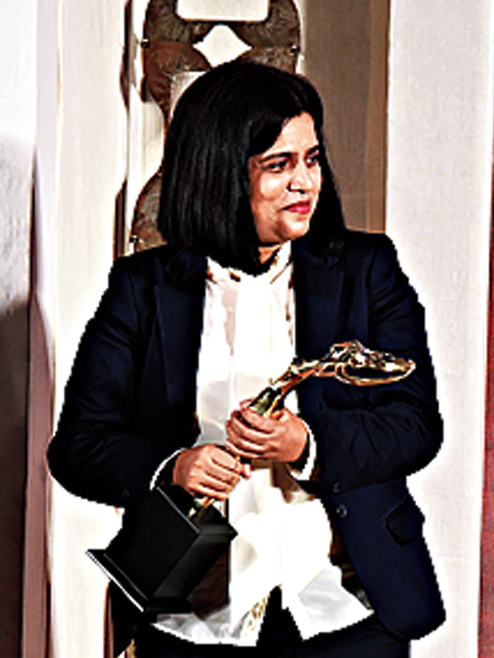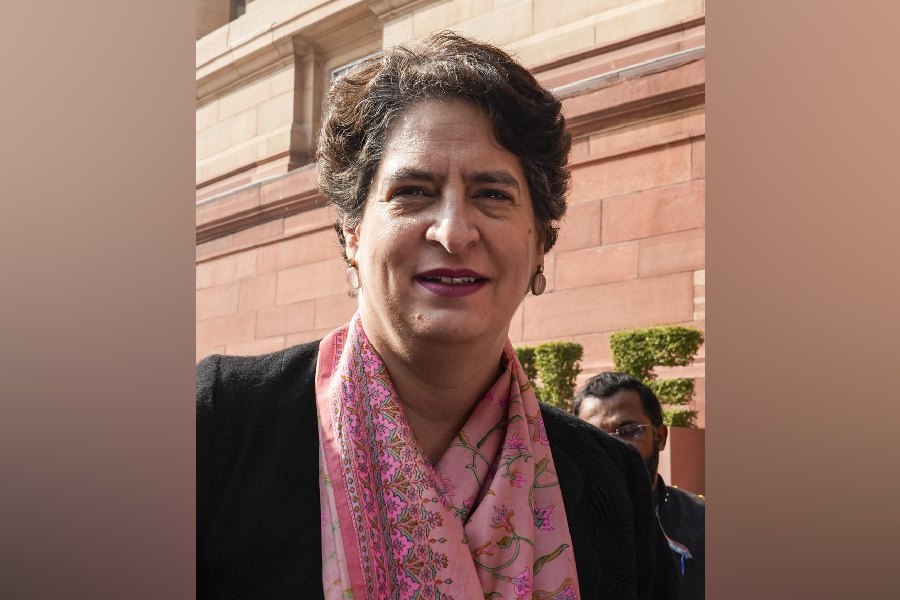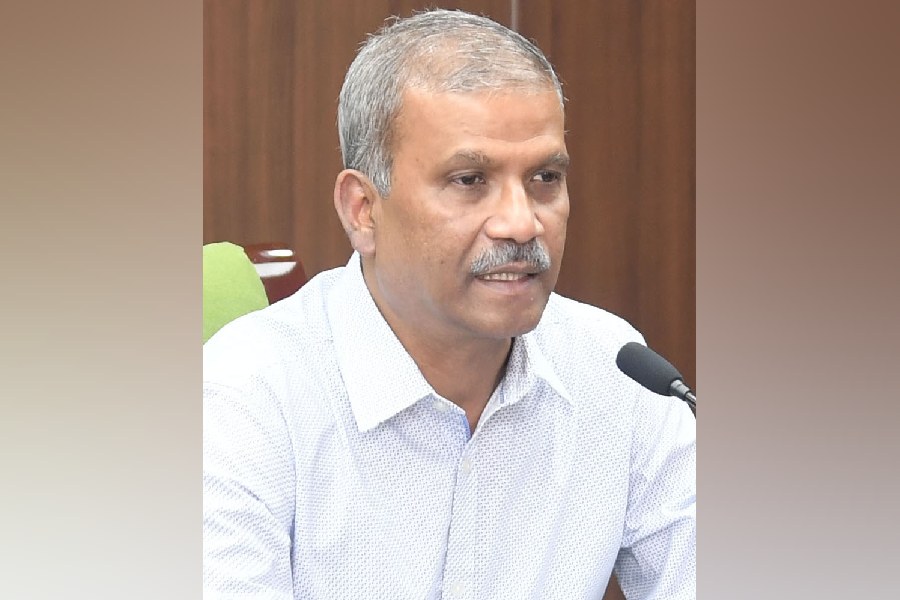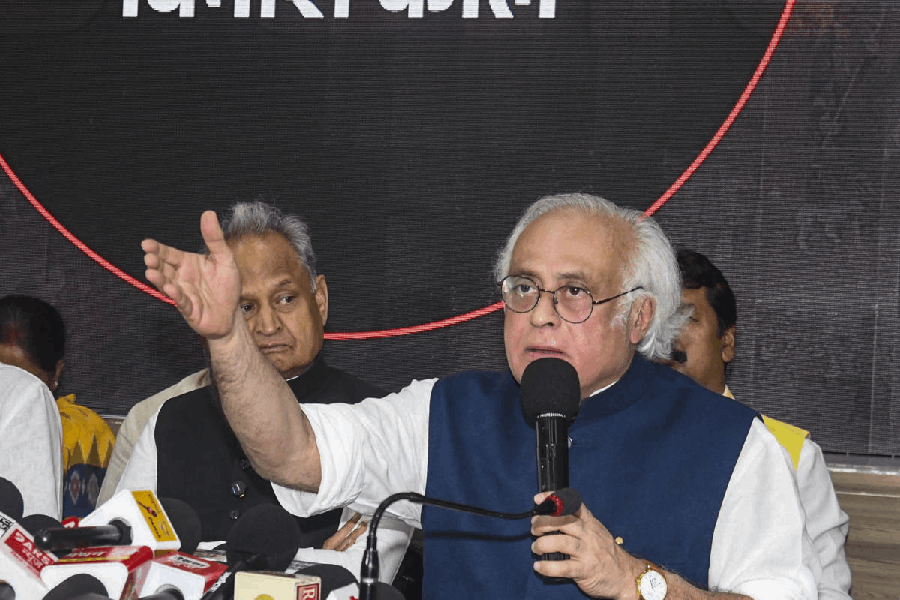
Whatever was with the time, I wanted to be there
I was born in Bhopal in 1971 and raised across several places — Jhansi, Delhi, Haridwar and ultimately Calcutta. Here I studied in St. Joseph’s Convent, Chandernagore, till Class X and then Loreto House. I graduated in English from Loreto College and then did a Master’s in English from Calcutta University. The plan was to continue with English and get into education.
But at that time, the fad was business management. So, after my MA I did business studies from Calcutta University. After a brief stint at Analytic Consultants, I joined Indian Rayon at Jaya Shree Textiles as HR officer. But I wanted to shift to IT, because again, that is what people were doing then. Whatever was with the time, I wanted to be there. So from manufacturing, I shifted to IT and joined Duncan Software. Later I moved to Webstar Infotec.
In 1999, I got an offer from Phoenix Conveyor Belt India, a group company within the Continental Corporation of Germany. It was for the position of HR manager. From 2000 till about 2011, I was in HR. I grew up with the company, in terms of my own abilities and contributions, with the support of my colleagues and superiors. I reached the position of head of HR.

My professional journey has been one of great learning
In 2011, it was decided that I should get a better overview, especially in operations. A succession plan was being made regarding who could become CEO. I went through this programme called Assessment Center by SLP and took over as chief operating officer in 2012, and in 2013, as managing director.
My professional journey has been one of great learning... we went through several challenges, including handling industrial relations, labour issues, productivity enhancement etc, but we were successful in dealing with those issues with our very strong team and committed colleagues. I would not have been able to be what I am today if I didn’t have the cooperation and support and teamwork of my colleagues and superiors, both from India as well as from Germany.
I must mention the tremendous grooming that was given to me as an opportunity. I went through a very detailed mentoring programme by my immediate superiors and one of the board members of Continental (the parent company), for a period of one-and-a-half years. I visited my mentor in Germany twice, the rest of it was more like distance mentoring. But it was a rare opportunity, because I think there were only about 10 people who were selected for the programme worldwide.
 Move out of the comfort zone
Move out of the comfort zone
Opportunities and uncertain environments don’t come with a plan. I prepare myself for surprises — if I face something that is out of the way, how do I deal with it. This processing is important. I have always felt that you should be alive and alert about the opportunities that come to you. Opportunities do not come very often. So when they come, we should use them to the fullest and think about moving out of the comfort zone.
My source of inspiration has been my father, Shyamaleshwar Chakraborty. He always drove my sister and me towards a lot of difficult and rigorous programmes. He told us one should move out from one’s comfort zone and be able to take up challenges, one shouldn’t get stereotyped. That helped us in grooming ourselves. I would also like to mention my mother, Laxmi Chakraborty, who has been a continuous symbol of sacrifice and support.
My husband, Shyamal Kumar Pandit, has been a very big support, as well as my mother-in-law, in terms of seeing me grow professionally. I have a daughter, Smitika, who is 11 now. There were times when she had to be left alone... she has been in daycare from a very young age, but I would say she has shown tremendous flexibility and ability to understand why her mother needs to be out. Overall I have had a really very supportive family that I can bank on and fall back on.
Companies must have empathy for women in special situations
Women are there in the first level of management and in middle management but not enough at the very top. I feel companies can address this through diversity programmes, flexible timings and a general level of empathy for women in special situations, like when they are in the family way, or post-delivery. But that’s a very brief period, and I feel women should learn to come back to working at their full potential very fast, which again is very competitive and there should be no difference between men and women, since talent and capability are not gender-specific.
She Awards
Firstly, the award was a first of its kind, there was a lot of awe and surprise attached to it. Second, The Telegraph She Awards acknowledges women in various fields and hence, it was an opportunity not just to see yourself being awarded but that there are so many women who are contributing in so many ways. It was wonderful to see the work done by the likes of Sister Cyril or Anoyara Khatun.... Third, of course, it felt proud and honourable to be acknowledged as one of the recipients. It gives you a little bit more assurance within yourself.

As told to Samhita Chakraborty










